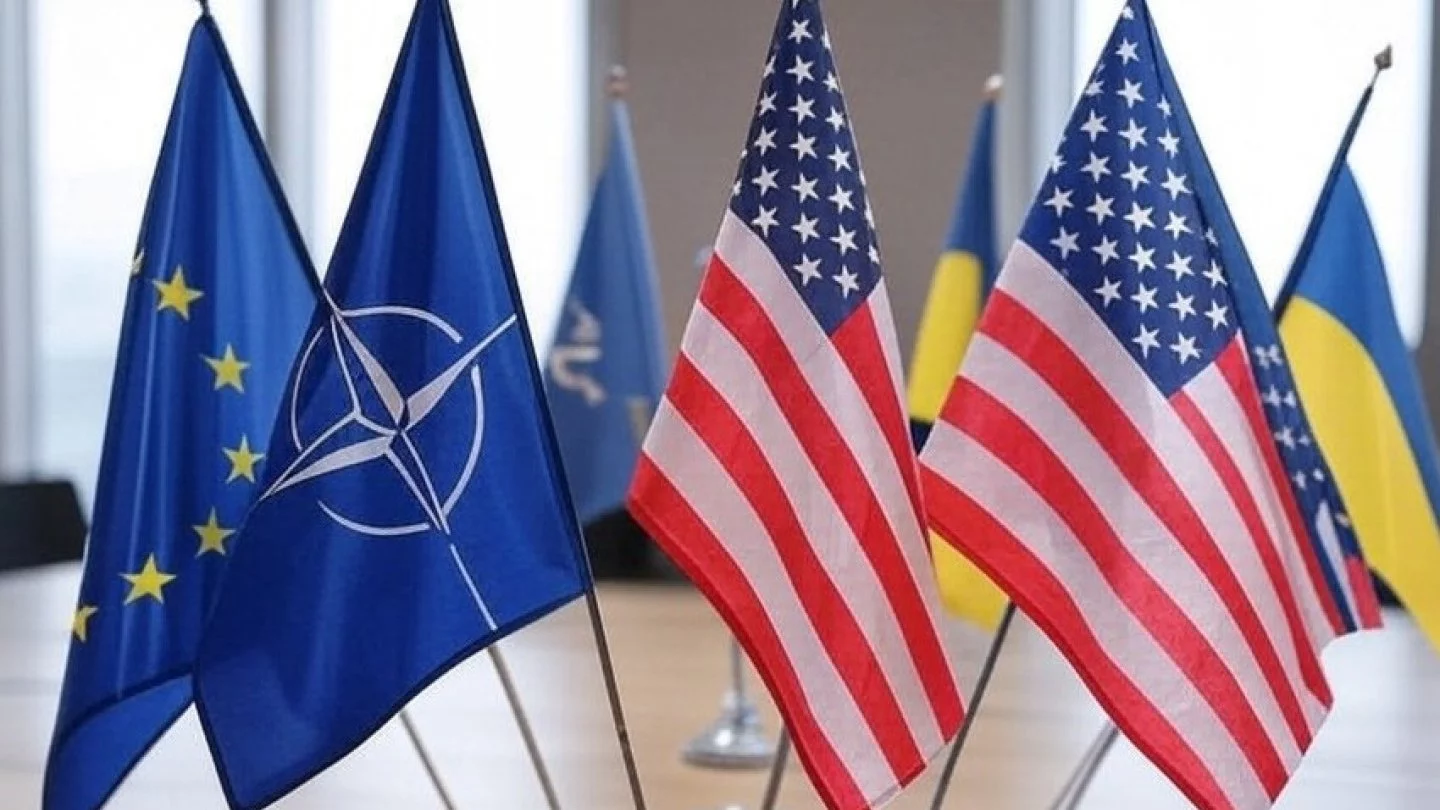A Messy Munich: Day One of Conference Ends
 Photo: Grok AI Generated, ill. purposes.
Photo: Grok AI Generated, ill. purposes.
The first day of the Munich Security Conference revealed deepening rifts between the US and European allies, with contentious discussions centered on Ukraine, NATO, and diplomatic approaches to Russia, Orda reports.
Vice President JD Vance's speech largely avoided Ukraine, questioning European democratic values and comparing Europe's ability to withstand Elon Musk's influence to America's experience with Greta Thunberg.
The speech received a notably cold reception, with Ukrainian MP Alexey Goncharenko reporting that European leaders were visibly shocked and barely applauded.
US Vice President Vance just spoke. The only thing that can be said about Vance's speech was the total humiliation of all European leaders. People in the room are shocked.
— Oleksiy Goncharenko (@GoncharenkoUa) February 14, 2025
This followed Vance's earlier WSJ interview suggesting possible US troop deployment to Ukraine, which he later retracted as "absurd."

Meanwhile, President Zelenskyy declined to sign a proposed memorandum giving the US rights to 50% of Ukraine's mineral resources, though his team continues working on the document.
Zelenskyy expressed a willingness to engage in US-led peace initiatives before direct Russian negotiations, emphasizing that any deal excluding Kyiv and Europe would be unwise, echoing previous statements.
He revealed having received a direct phone line to Trump while criticizing Putin as "a liar" regarding previous ceasefire and prisoner exchange attempts. During the conference, Zelenskyy also met with UK PM Keir Starmer, who reaffirmed Britain's ongoing support.
European leaders responded strongly to the US positions. German Defense Minister Pistorius deemed Vance's statements "unacceptable" and criticized the pace of US-Russia rapprochement.
European Commission President von der Leyen warned against punitive tariffs and trade wars and promised European countermeasures. Conference chair Heusgen explicitly criticized Trump's negotiation approach with Russia, particularly regarding pre-negotiation concessions about Ukraine's NATO membership.
Amid ongoing uncertainty, Zelesnkyy stated that if NATO membership were off the table, then Ukraine would need Western support to maintain an army of 1.5 million soldiers as deterrence against future Russian aggression:
It doesn't matter what country these forces are from. In any case, we need 1.5 million troops if we are not in NATO.
The international dynamic grew more complex as Russia declined to send a delegation despite Trump suggesting weekend meetings.
Chinese Foreign Minister Wang Yi positioned against US "intimidation tactics" while supporting European involvement in Ukraine peace negotiations.
At the same time, Pentagon chief Pete Hegseth warned Europeans not to take the US military presence for granted. New NATO Secretary General Mark Rutte urged European allies to define clear potential contributions to any Russia-Ukraine peace agreement.
The conference continues amid concerns over transatlantic unity, Ukraine's future security arrangements, and the broader implications of shifting US-Russia relations under the Trump administration.
Latest news
- 2,500 Participants from 22 Countries: Almaty Opens the Running Season
- Snow and Frost: Weather Forecast for February 15
- Tokayev congratulates Serbia’s President Vucic on Statehood Day
- Mikhail Shaidorov Wins Kazakhstan’s First Winter Olympic Gold Since 1994
- Indian Crested Porcupines Spotted by Camera Trap in Ile-Alatau National Park
- Kazakhstan’s Air Pollution Isn’t Driven by Factories — Ministry of Ecology
- How the US Views Kazakhstan’s Constitutional Reform and Free Speech
- US Ambassador to Kazakhstan: Visa Restrictions for Kazakhstanis Are a Temporary Measure
- China-to-Russia Shipments Are Increasingly Bypassing Kazakhstan
- Shokan Ualikhanov Private School Reclassified as Large Business After Staff Tops 250
- Former Priest Yakov Vorontsov Reportedly Detained in Kazakhstan
- Kazakhstan Proposes Differentiated Toll Rates for Transit Foreign Drivers
- World Bank Ready to Provide Kazakhstan Up to $1 Billion a Year for Six Years
- Woman Forced to Move and Change Jobs Repeatedly as Ex-Husband Stalked Her
- Kazakhstanis Are Getting Married Less Often
- Why Online Voting Isn’t Coming for the 2026 Referendum
- Mephedrone lab network uncovered in Almaty’s private houses
- Kazakhstan’s Domestic Trade Slows in January
- A Man Spent Six Months in Jail for Nothing — Court Awards Millions from the State
- Over 100M Tenge in Budget Money Allegedly Spent on Gambling in West Kazakhstan

